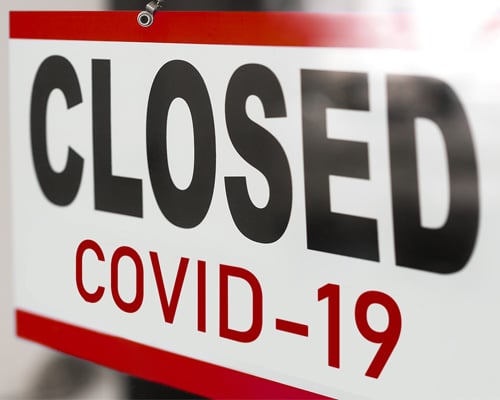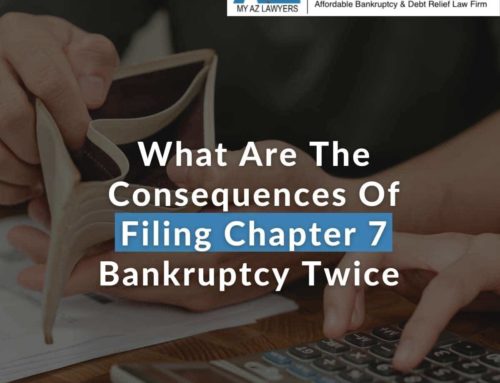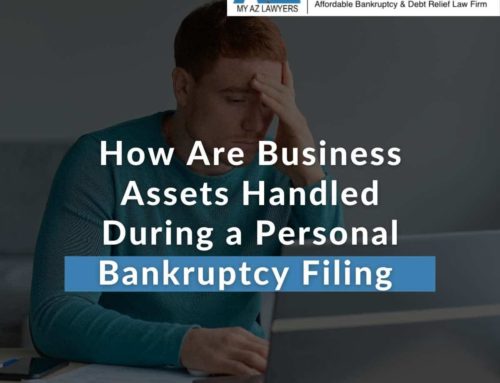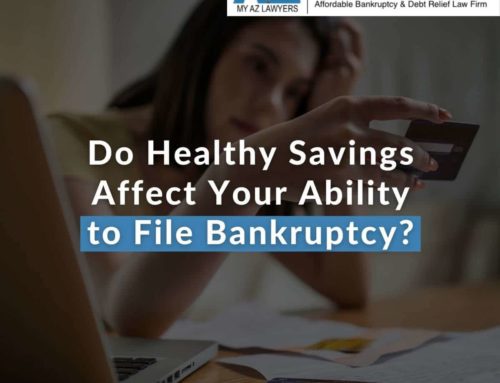Filing Bankruptcy in Arizona After a Covid 19 Layoff
Our AZ Bankruptcy Attorneys Discuss how Filing Bankruptcy After a Layoff due to Covid could solve your problems
You may have never imagined that you would be in a financial situation that causes you to consider bankruptcy. However, many people never imagined an airborne virus spreading across the world, upending the global economy. If you are one of the millions of Americans who lost their jobs during the pandemic, you may have accrued personal debt making ends meet and are now considering bankruptcy.

How Common is having to file bankruptcy because of losing your job?
Behind medical debt, a job loss is the second most common reason that people in the United States file bankruptcy. Job loss may actually overtake medical debt as the number one cause of bankruptcy in the United States in 2020 and 2021.
You’re not alone.
Unemployment currently sits at approximately 6.7% nationwide, but unemployment levels reached 14.7% in the United States at its peak in April 2020. These are the highest unemployment rates the United States has experienced since the Great Depression. Bankruptcy filings increased 33% during the 2008 recession, so it’s to be expected that there may soon be a similar increase in filings. Arizona is experiencing parallel unemployment rates to the rest of the country, compared to an unemployment rate of 4.6% this time last year. Hundreds of thousands of Arizona residents were forced to apply for unemployment benefits for the first time in their lives due to the pandemic, so you shouldn’t feel embarrassed or alone if you’re one of them.
COVID-19 and Losing your job are common causes of declaring bankruptcy. What are some other common reasons that people file for bankruptcy?
As mentioned earlier, medical debt is the number one reason that people file bankruptcy in Arizona. In fact, a study conducted in 2019 by the American Journal of Public Health found that approximately ⅔ of United States bankruptcies originated from a medical issue. Credit card debt is another common cause of bankruptcy. A divorce or legal separation can be costly enough to force some former spouses to file bankruptcy. Natural disasters and other unexpected emergencies cause many Americans to incur enough debt to warrant bankruptcy.
Times are tough, but lawmakers have put out some precautions to prevent widespread disease spread, financial ruin, and homelessness. The Coronavirus Aid, Relief and Economic Security Act (CARES Act) was passed on March 27, 2020. Some of the features included a stimulus check for certain American families, increased unemployment benefits, and payroll protection loans for small businesses. However, all of these precautions haven’t been enough to keep millions of Americans current on their rent.
State governors and the CDC have also enacted eviction moratoriums to prevent residential evictions, which could increase the spread of the coronavirus. Rent still accrues if it isn’t paid during a moratorium, but the landlord may not charge late fees and other penalties.
What happens if you can’t pay rent?
The CDC eviction moratorium expires December 31, 2020. Any unpaid rent from that period is not waived, and will become due. Unless the moratorium is extended, residential landlords can begin evicting tenants who are behind on rent in the new year.
Even if you aren’t behind on rent yet, a layoff can mean your current rent will be out of your budget. Chapter 7 bankruptcy may be an option for you if you’d like to abandon a lease you can no longer afford without paying extra charges. You can reject your lease in bankruptcy and discharge any back rent and penalties to your landlord as if they were any other creditor. However, you can’t continue living in the residence if you file bankruptcy to discharge your rent and reject your lease.
Will filing bankruptcy get rid of back rent owed?
Back rent is one of the types of debt eligible for discharge in bankruptcy. If you vacate your residence while you owe back rent, your landlord won’t be able to evict you, but can pursue you for a money judgment for your rent balance. You can use bankruptcy to discharge back rent before or after your former landlord secures a money judgment against you.
Can I still rent an apartment after filing for bankruptcy?
You don’t have to abandon your lease as part of your bankruptcy. If you are current on rent, you can opt to retain your lease and exclude your landlord from your creditor mailing matrix. Filing bankruptcy appears on your credit report, but your future rent can’t be discharged after the date of filing. Furthermore, you won’t be eligible to file Chapter 7 bankruptcy again (and discharge your rent) for 8 years, which in a way actually makes you a better candidate for a rental.
Call Our AZ Bankruptcy Team to Discuss Your Options During this Pandemic
It seems logical that when people lose their jobs, they may rely on credit cards to pay for groceries and other necessities until finding new employment. Surprisingly, the number of purchases made with credit cards has only risen 3.4% during the pandemic. Applications for new credit cards have actually dropped by 40%. That shows that Americans are hesitant to open up new lines of credit while experiencing reduced income due to the pandemic.
Does Filing Chapter 7 bankruptcy get rid of credit card debt?
Because they are unsecured nonpriority debts, credit cards are discharged in Chapter 7 bankruptcy However, there are some limitations to this. Any luxury purchases over $725 in the 90 days before your bankruptcy may be excluded, and not discharged in the bankruptcy. Cash advances of $1000 or more in the 70 days before your bankruptcy will be treated the same way.
Will I ever be able to get a credit card again after filing bankruptcy?
The Automatic Stay, which goes into effect when your bankruptcy petition is filed, freezes all your assets and you will be unable to open new lines of credit. The Automatic Stay remains in effect until your case is either dismissed or discharged. You are eligible to open new lines of credit once the Automatic Stay has ended. You should start receiving offers for new credit cards in the mail soon after you receive your discharge letter.
Is Credit card debt a common cause of bankruptcy?
Credit card debt follows medical debt and job loss as the most common cause of bankruptcy in the United States. Credit card debt can often result in negative credit impact, money judgments against you, and even wage garnishments. Filing bankruptcy in Arizona immediately halts garnishment and other collection methods, and protects you until the debt is discharged at the end of your case.
Call Us for Help!
If you’ve been laid off due to the pandemic, bankruptcy may not be your only option. Switching to a less expensive lifestyle, negotiating your debt, or waiting for further stimulus aid may work better for your situation than a bankruptcy filing. The best way to find out is by discussing your situation with an experienced bankruptcy attorney. In a personalized case evaluation with a bankruptcy attorney, you can determine for which chapters you qualify, and how to time your case based on factors like your employment and tax returns. Don’t wait until creditors have summoned you to court- call and schedule your free consultation with one of our Arizona bankruptcy attorneys today.
Mesa Bankruptcy Law Office
Mesa Bankruptcy Lawyers
4065 E University Dr #500
Mesa, AZ 85205
(480) 470-0005
Phoenix Bankruptcy Law Office
668 North 44th Street, Suite #300
Phoenix, AZ 85008
(480) 833-8000
Glendale Bankruptcy Law Office
My AZ Lawyers
20325 N. 51st Ave.
Suite #134
Glendale, AZ 85308
(623) 640-4945
Tucson Bankruptcy Law Office
My AZ Lawyers
2 East Congress St. Ste. 900
Tucson, AZ 85701
(520) 306-8729
Avondale Bankruptcy Law Office
My AZ Lawyers
12725 W. Indian School Rd.Suite E, #101
Avondale, AZ 85392
(623) 399-4222






